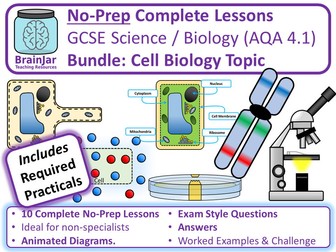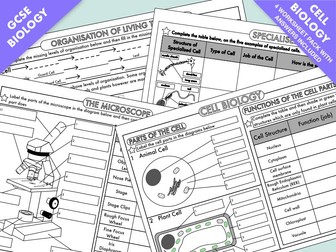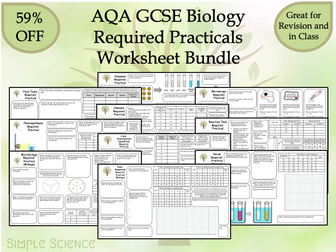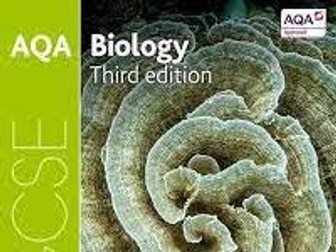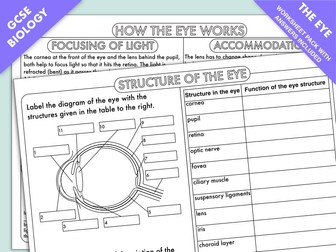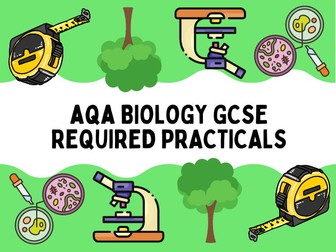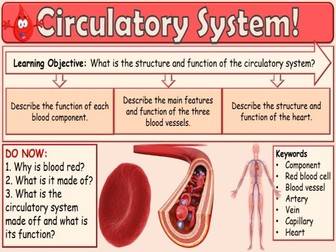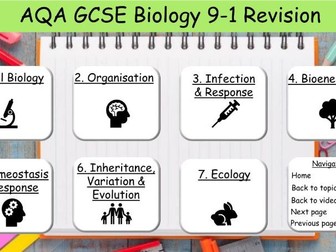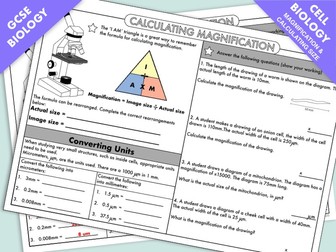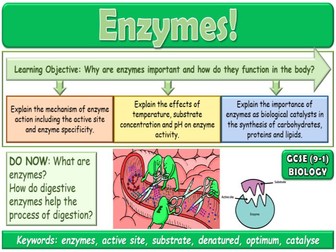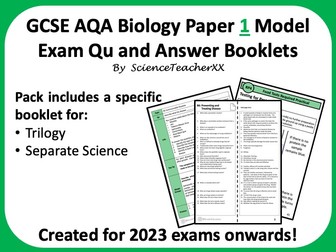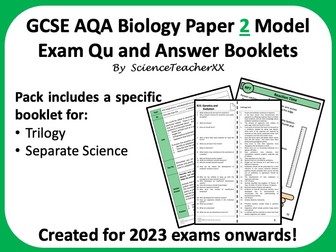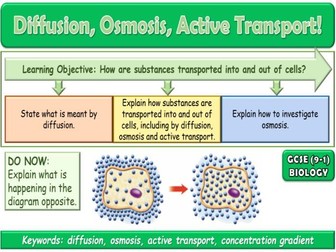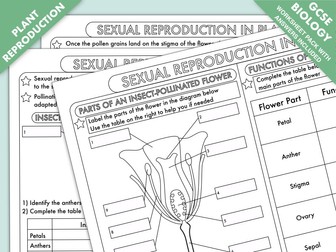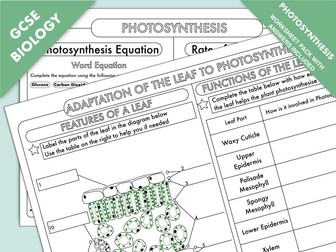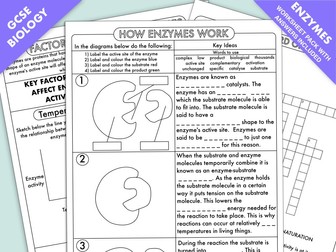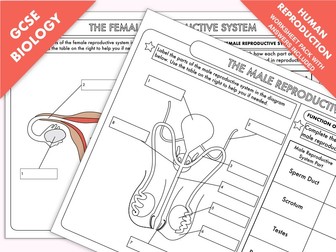Bundle
Bundle: Cell Biology Topic
<p>A bundle of 10 <strong>Complete No-Prep lessons</strong> with <strong>exam questions, tasks and answers</strong> covering the complete Cell Biology topic (4.1) for AQA GCSE Combined Science Biology and GCSE Biology (9-1).</p>
<p>As a Secondary Science teacher, Deputy Headteacher, writer and examiner for many years I make high quality <strong>no-prep</strong> lessons so busy teachers can teach <strong>outstanding lessons without spending hours planning.</strong> These high quality lessons include explanations, different types of in-lesson assessment (all <strong>with answers</strong>) and <strong>unique exam-style questions</strong>.</p>
<p>My lessons are designed to take learners on a journey that builds up their understanding step by step, while still going into a lot of depth. The <strong>preview video</strong> for each resource shows a representative sample of slides from the resource so that you get a good idea of what it includes before you buy. <strong>The Active Transport lesson is also free so that you can see what my lessons are like before purchasing.</strong></p>
<p><strong>Teaching Order</strong> for Combined Science. <strong>Bold</strong> indicates lessons that are GCSE Biology only</p>
<ol>
<li>Eukaryotic, Prokaryotic, Animal and Plant Cells.</li>
<li>Specialised Cells</li>
<li>Microscopes (includes Required Practical)</li>
<li><strong>Culturing Microorganisms (Bacteria) (includes Required Practical)</strong></li>
<li>Chromosomes and Mitosis (Cell Cycle)</li>
<li>Stem CElls</li>
<li>Diffusion</li>
<li>Surface Area to Volume Ratio and Exchange Surfaces</li>
<li>Osmosis (includes Required Practical)</li>
<li>Active Transport (FREE).</li>
</ol>
<p><strong>What’s Included in each lesson:</strong><br />
• Starter / Do Now Activity<br />
• Explanation slides in “chunked” sections with <strong>animated diagrams</strong>.<br />
• Worked examples of calculations / questions where applicable<br />
• Multiple questions in different question styles and difficulties - no need for worksheets. Each “chunked” explanation section typically includes a set of “<strong>learning check / quick questions</strong>” followed by a set of <strong>in-depth questions</strong> on the learning from that “chunk” of the lesson. All questions have <strong>answers</strong>.<br />
• <strong>Exam-style questions</strong> on the whole lesson at the end of the lesson- these are unique, based on real exam questions but not just copied from exam boards.<br />
• <strong>Answers</strong> for all questions<br />
• All easily editable to adapt to your teaching or to use in existing lessons.<br />
• Slightly humorous, at points, if you like that sort of thing.</p>
<p>The lessons were written for AQA GCSE Science / Biology but are very likely to be applicable to other exam specifications.</p>
<p><strong>Please leave a rating / review and all other feedback gratefully received!</strong></p>
